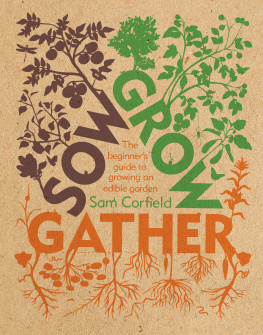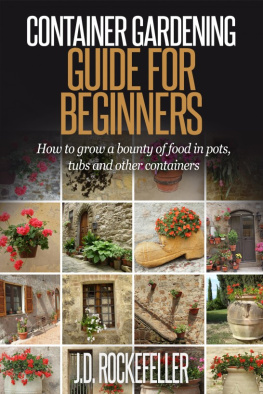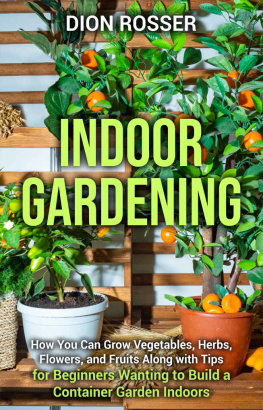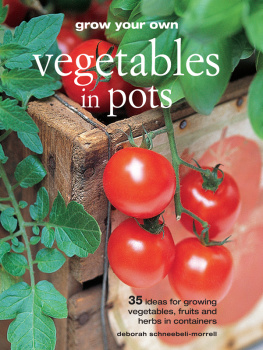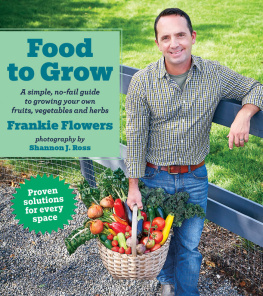
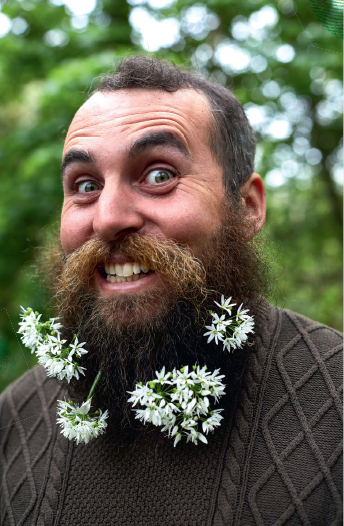
Sam Corfield (aka The Hairy Horticulturist) is a trained horticulturist, cameraman and expert vegetable grower residing in Cornwall, South West England. Having spent many years working and training at the world-renowned Lost Gardens of Heligan, Sam now has a large online following on Instagram, where he provides information and education on growing-your-own and self-sufficiency. His work has led to him building a large kitchen garden for an award-winning pub, managing a five-acre farm shop vegetable garden and growing an impressive beard. Sam loves to grow more unusual varieties of fruit and veg that you wouldnt find in your local shop or supermarket and encourages his fans to do the same with his unique, fun and accessible approach to gardening. He is currently renovating a 750-year-old mill where he hopes to grow vegetables for many happy years to come. This is his first book.
Come say hi: @the_hairy_horticulturist
To all the vegetables that have made the ultimate sacrifice over the years, I thank you!
Working in horticulture isnt an easy path to take in life and to really understand it and learn your craft takes years of monotonous tasks that you repeat season after season. However, its something I love, thats become part of me, thats crafted me into this bearded vegetable-waving weirdo and Im lucky enough to call it work.
Firstly, Id like to thank my partner Sarah, youve always been there for me, even when weve been apart. Thank you to my parents and grandparents for your endless support and love, youve all taught me so much both in life and in the garden.
Thank you to my editor Harriet Webster, for your guidance, support and advice. Youve taken the vegetable ramblings Ive put before you and made them into something rather lovely.
Thank you to Dave Brown, someone Im now lucky enough to call my friend. Youve designed such a beautiful book, taken such wonderful photos and put up with my endless porn poses. Thank you to Quadrille for allowing me this opportunity to create something rather special, if not different.
Thanks to Reuben, Charlie, Emily and Darcy for allowing me to build such a large garden and grow a disgusting number of vegetables at your house.
Many thanks to Tanya and Alex you let me build, grow and create a beautiful and productive kitchen garden at your pub, Im forever grateful.
Thanks to Jim, James and Dr Tony, you all taught me so much, some of which I didnt need to know!
Thank you to specialist wildlife cameraman Ian Llewellyn, for all youve taught me over the years both in wildlife and in life. More recently Ive loved our fun-filled, albeit slightly weird, vegetable work together. I wouldnt be half as strange as I am without you!
Thank you to all those Ive worked with, that have shared their knowledge and ideas with me.
Finally, thanks to those that have given their lives to the garden, I miss them dearly.
Pard, the tide waits for no man!
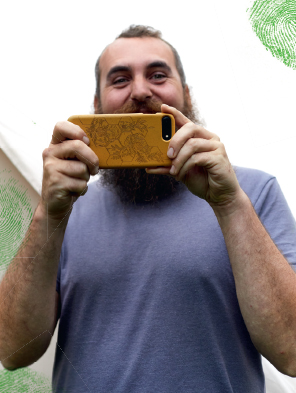
Hi. Im Sam and Ive ruined my serious horticultural career by posting photos of myself online with vegetables. To be honest, its not really ruined and, if anything, its allowed me to get thousands more people from all walks of life interested in growing their own food.
Horticulture has been part of my life for as long as I can remember, but professionally Ive been growing things for over 18 years. I began my working life at the world-renowned Lost Gardens of Heligan in the UK, and this helped me to learn continuously while constantly talking to visitors and offering advice. Back then, I was a slender, clean-shaven boy who dreamed of fitting slow cars with loud exhausts. In some ways, I havent just been tied to just one industry, as horticulture leads to many other avenues like forestry, farming and conservation. After several years at Heligan, I found myself working in wildlife and, subsequently, spending several years as a cameraman for the BBC Natural History Unit. Following this, I moved to New Zealand for six months and became head gardener of a private garden. On my return, by chance, I became involved with creating a kitchen garden at my local pub, The Polgooth Inn in Cornwall, UK. Here, I really cultivated my skills in vegetable and beard growing and created a beautiful kitchen garden supplying fresh produce to the pub kitchen.
Gardening can be boring I should know! Ive lost several days of my life pulling weeds out of the ground in the rain, while humming teen pop songs. However, there is something special about growing plants especially those you can eat. Gardening books dont need to be boring. They should be fun and light-hearted while still offering up all the main ingredients you need to grow a brilliant garden. Bringing humour to horticulture is something I enjoy and seems to be a really great way of getting everyone interested in growing their own food. Growing food in containers is something Ive always done and Im always recommending it to people. You dont need a large garden, a huge greenhouse or a beard. Just some soil, seeds and pots.
Just before we delve into the growing world of plants, youre probably thinking, why do I have to sow new plants each year?
Well, most of the edible plants that I talk about are annuals, which means they grow, reproduce and die all in one year. Perennial plants, like strawberries, will effectively go through the same process as annuals but, instead of completely dying, they lose their leaves and die back before reappearing the following spring and starting the process all over again. Youll be uprooting lots of dead plants in winter, but this means you can prep your pots and beds and get very excited buying new seed varieties to grow next year.
Now go sow, grow, gather and just dont muck it up!
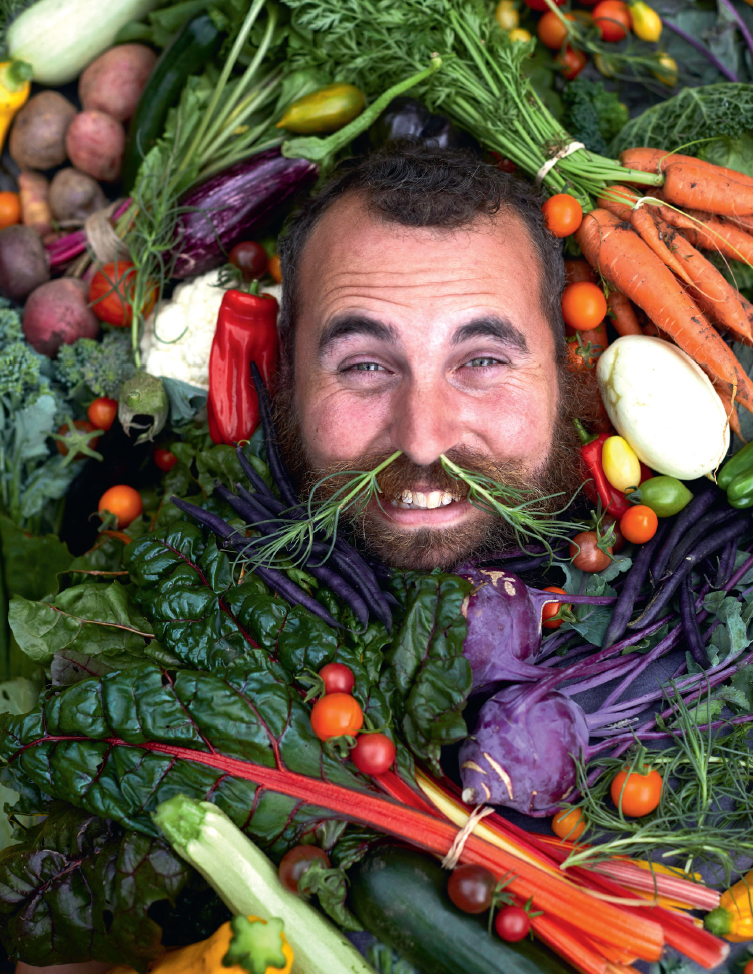
When it comes to using basic equipment in your edible growing space, you dont always need to go and buy loads of fancy tools. There are actually tons of things around the house you can use, including those very helpful appendages called hands. Heres my list of useful tools that will come in handy on your growing quest.
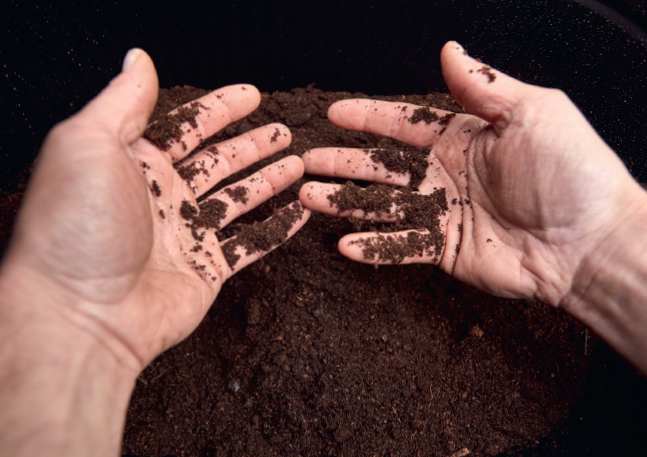
Bamboo canes
These are very important for creating supports and structures for your plants to climb up or lean on. Of course, you can use other sticks as supports, but bamboo canes are perfect for using with loads of different plants and if you look after them, they can last for years.
Dibber
This is a tool used for making holes in the compost when sowing or transplanting. You can buy a proper one, but I like to use pens and pencils, or even my finger, as they work just as well.
Hands
Yes, they are pretty useful and my number one tool. Use them as dibbers, shovels, mixers, sieves the list is endless!
Secateurs
These are great for cutting back and trimming plants, as well as cutting string and twine. Most gardeners have them and there are some very fancy versions out there, but you just need a basic pair.
Seed dispenser
Next page
